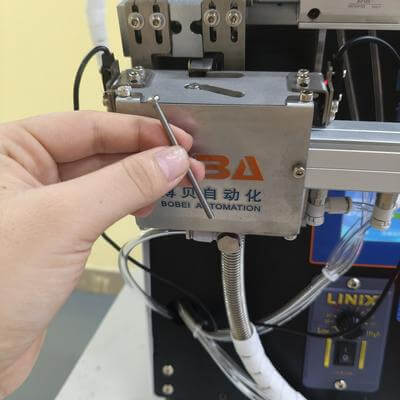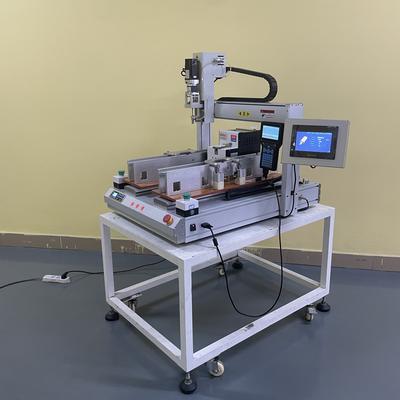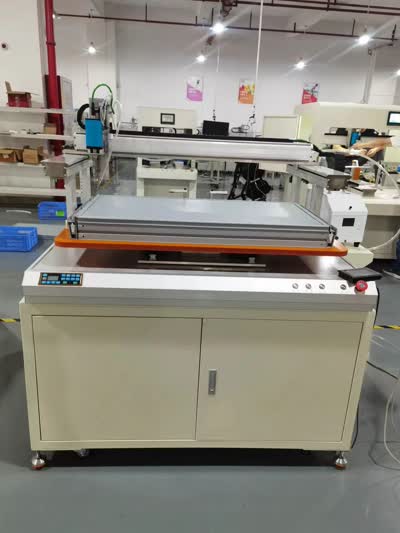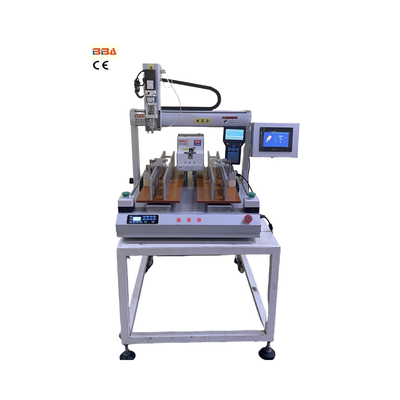Importance of Torque Accuracy in Multi-Axis Screw Fastening Machines

| Product Name | Applicable industries |
| Auto Screwdriver Machine | Automotive Electronics Assembly |
In modern industrial automation, multi-axis screw fastening machines play a crucial role in ensuring efficient and precise assembly processes. One of the most critical aspects of their performance is torque accuracy, which directly impacts product quality, consistency, and operational reliability. This article explores the significance of torque accuracy in multi-axis screw fastening machines and how advancements in technology are enhancing their capabilities.
The Importance of Torque Accuracy
Torque accuracy refers to the ability of a fastening machine to apply the correct amount of rotational force to a screw or bolt consistently. In multi-axis systems, where multiple fastening points are addressed simultaneously, maintaining uniform torque across all axes is essential. Inaccurate torque application can lead to under-tightened or over-tightened fasteners, resulting in product defects, reduced durability, and even safety hazards.
For industries such as automotive, electronics, and aerospace, where precision is non-negotiable, high torque accuracy ensures compliance with stringent quality standards. It minimizes the risk of loose connections, which could cause equipment failures, or excessive tightening, which might damage components or threads.
Factors Affecting Torque Accuracy
Several factors influence the torque accuracy of multi-axis screw fastening machines:
- Mechanical Design: The rigidity and alignment of the machine's components, including spindles and drive systems, determine how consistently torque is delivered.
- Sensory Feedback: Advanced torque sensors and real-time feedback mechanisms enable continuous monitoring and adjustments during the fastening process.
- Control Systems: Precision control algorithms ensure that each axis operates within specified torque tolerances, compensating for variations in material density or friction.
- Tool Calibration: Regular calibration of fastening tools is necessary to maintain accuracy over time, as wear and tear can affect performance.
Technological Advancements Enhancing Torque Accuracy
Modern multi-axis screw fastening machines leverage cutting-edge technologies to achieve superior torque accuracy:
- Closed-Loop Control Systems: These systems use real-time data from torque sensors to adjust motor output instantly, ensuring precise torque application.
- Smart Algorithms: Machine learning and AI-driven algorithms predict and compensate for potential inconsistencies, optimizing performance across multiple axes.
- High-Resolution Encoders: Enhanced positional feedback from encoders allows for finer control over the fastening process, reducing deviations.
- Modular Tooling: Interchangeable and adjustable tooling systems accommodate various fastening requirements while maintaining accuracy.
Conclusion
Torque accuracy in multi-axis screw fastening machines is a cornerstone of industrial automation, ensuring reliable and high-quality assembly processes. By understanding the factors that influence torque precision and embracing technological innovations, manufacturers can achieve greater consistency, efficiency, and product integrity. As industries continue to demand higher standards, advancements in torque control will remain a key driver of success in automated fastening solutions.


